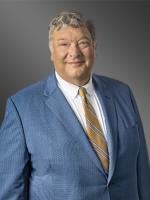Last week, the Maryland Court of Appeals (the highest state court) decided a lead paint toxic tort case of potential interest to environmental lawyers. Levitas v. Christian, No. 58 Sept. Term 2016 (Md. July 11, 2017), holds that a pediatrician may testify not only that the plaintiff’s injuries are the result of lead exposure, but also that he was exposed to lead while living in defendant’s building. This evinces a relatively relaxed approach to expert qualification, particularly in the fate and transport or exposure pathway context.
The plaintiff lived in defendant’s building during two periods when he was an infant and a small boy; he lived elsewhere for a time as well. Born in 1990, he brought suit in 2011 ahead of the expiration of the limitations period for injuries caused by exposure to lead paint or paint chips. His blood lead concentrations were tested as a boy, and they were elevated before he left defendant’s building, but more elevated after. Plaintiffs offered evidence that defendant’s building contained deteriorating paint at the time, and that it was likely lead-containing.
Plaintiffs’ counsel have filed a substantial number of these lead-paint exposure cases in Baltimore City, among other places, as plaintiffs who are young enough to have had routine lead testing as children reach majority.
An expert medical doctor proposed to testify that plaintiff’s various injuries resulted from his lead exposure. He also proposed to testify that plaintiff was exposed to the lead at defendant’s building, as opposed to anywhere else. The trial court excluded the exposure pathway evidence under Maryland Rule of Evidence 5-702.
Note that Rule 5-702 is similar to, but not exactly the same as, Federal Rule of Evidence 702, and Maryland is a Frye, not a Daubert, jurisdiction. Chesson v. Montgomery Mut. Ins. Co., 75 A.3d 932 (Md. 2013).
In this case the issue turned on whether the physician had sufficient experience, training, or education to opine as to exposure pathways, and whether he had a sufficient factual basis to support his opinion. In each case, the trial court erred, and should not have excluded the expert’s opinion. Essentially, the Court of Appeals reasoned that a pediatrician who had experience with a lot of infant and toddler lead paint cases would know enough to be expert about how small children come to have high blood lead levels, and that he had enough facts about defendant’s building to opine that its condition was a substantial factor in plaintiff’s injury.
Experts who work on many similar cases learn a lot about complementary fields. Certainly the lawyers do. This opinion seems to give some latitude to an expert in one field to claim a broader expertise — in paint composition or children’s ingestion habits, for example. Think about applying this sort of acquired expertise to experts in groundwater contamination cases. Can the geologist testify to vapor intrusion? Can the toxicologist testify to groundwater flow? Can either of them testify to the connection between the defendant’s historical activities and the groundwater conditions now?
Interestingly, Maryland’s Frye jurisprudence is a somewhat tight on the ability to testify. Chesson, for example, precluded a physician from testifying that mold exposure caused plaintiff’s injuries because the causal connection between mold toxins and plaintiffs’ symptoms was not generally accepted.
Maryland Rule of Evidence 5-702:
Expert testimony may be admitted, in the form of an opinion or otherwise, if the court determines that the testimony will assist the trier of fact to understand the evidence or to determine a fact in issue. In making that determination, the court shall determine (1) whether the witness is qualified as an expert by knowledge, skill, experience, training, or education, (2) the appropriateness of the expert testimony on the particular subject, and (3) whether a sufficient factual basis exists to support the expert testimony.



 />i
/>i

